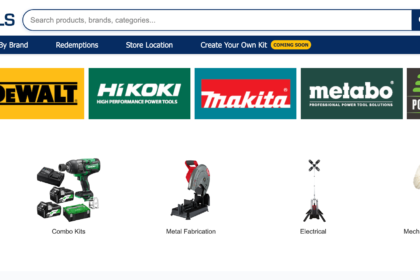When it comes to creating an optimal workspace, office furniture plays a critical role, and one of the most important pieces of office furniture is the office chair. The chair’s design and how well it supports the body can significantly impact an employee’s posture and overall long-term health. In modern office environments, many workers spend hours seated at desks, and poor posture from ill-designed office chairs can lead to a variety of health issues over time.
An office chair that is ergonomically designed provides the necessary support to maintain proper posture and reduce the risks associated with long periods of sitting. Unfortunately, many office chairs are not designed with the user’s health in mind, resulting in discomfort, pain, and even chronic health problems. As office spaces evolve, so too must our understanding of how office furniture influences our well-being.
The Role of Office Chairs in Posture Maintenance
Posture is the alignment of the body while sitting, standing, or moving, and maintaining proper posture is essential for musculoskeletal health. When sitting at a desk, the spine should have a natural curve, and the body should be supported in a way that prevents slouching or leaning forward. The design of the office chair greatly influences this alignment.
An ergonomically designed office chair supports the natural curve of the spine, promotes a neutral sitting position, and reduces strain on the neck, shoulders, and lower back. Features such as lumbar support, adjustable armrests, seat height, and backrest can be tailored to an individual’s body to help maintain proper alignment. When the office chair provides adequate support, employees are less likely to adopt poor posture, which can lead to a variety of musculoskeletal issues.
However, not all office chairs are designed with ergonomics in mind, and many employees find themselves using chairs that do not properly support their posture. When an office chair lacks lumbar support or proper backrest adjustments, it can lead to slouching or hunching forward, causing unnecessary pressure on the spine and muscles. Over time, this can result in discomfort, back pain, and other health issues.
The Link Between Poor Posture and Long-Term Health Problems
When employees spend long hours sitting in office chairs that do not promote proper posture, it can lead to several long-term health problems. One of the most common issues is chronic back pain, particularly in the lower back. Sitting for extended periods with poor posture puts strain on the spinal discs, muscles, and ligaments, which can result in discomfort or injury. Poor posture can also cause muscle imbalances, where some muscles are overworked while others are underutilised, leading to tension, stiffness, and pain.
Neck pain is another common issue associated with improper office chairs. When workers are seated in a chair that does not support the natural curve of their spine or the height of their desk is not properly aligned, they may strain their necks by craning their heads forward or tilting them at uncomfortable angles. Over time, this can lead to chronic neck pain or even more serious conditions such as herniated discs or nerve compression.
In addition to musculoskeletal problems, poor posture can have wider implications for overall health. Prolonged sitting has been linked to a range of health issues, including cardiovascular problems, obesity, and diabetes. Sitting for long periods without moving reduces circulation and can contribute to weight gain, particularly around the waist, which increases the risk of metabolic diseases. In fact, studies have shown that sitting for extended periods without breaks can shorten life expectancy and negatively impact overall quality of life.
The Importance of Ergonomics in Office Chairs
To mitigate the health risks associated with poor posture, ergonomics must be a primary consideration when selecting office furniture, especially office chairs. An ergonomic office chair is designed to reduce strain on the body by promoting correct posture and supporting the natural alignment of the spine. The chair should be adjustable in multiple ways, including seat height, backrest angle, armrest height, and lumbar support, so it can be customised to suit the individual user’s body type and work habits.
Lumbar support is particularly important for promoting healthy posture. It helps support the lower back and encourages the spine’s natural curve, preventing slumping. Chairs that provide adjustable lumbar support allow employees to modify the level of support to suit their unique needs. This adjustment is especially crucial for workers who spend long hours seated, as it can help reduce the risk of lower back pain and other spinal issues.
In addition to lumbar support, the seat depth and width should also be considered. The seat should allow for enough space between the back of the knees and the front of the seat to prevent pressure on the thighs. A seat that is too deep can force the user to slide forward, while a seat that is too shallow may not provide adequate support for the thighs.
Adjustable armrests are another important feature of ergonomic office chairs. Armrests help support the arms and shoulders, reducing strain and tension in the upper body. The height and width of the armrests should be adjustable so that they can be positioned to allow the arms to rest comfortably at a 90-degree angle. This can help reduce the risk of shoulder and neck pain, which are common complaints in office workers.
Preventing Long-Term Health Problems with Proper Office Furniture Choices
Investing in high-quality ergonomic office chairs is one of the best ways to ensure that employees maintain proper posture and avoid long-term health issues. While the initial cost of ergonomic chairs may be higher than traditional office chairs, the investment can pay off in the form of improved employee health, productivity, and job satisfaction. Employees who are comfortable and pain-free are more likely to stay focused, engaged, and motivated throughout the workday.
In addition to choosing the right office chair, it is also important to encourage employees to take regular breaks from sitting. The human body was not designed to remain seated for long periods, and it is important to move around regularly to promote circulation and relieve tension. Encouraging employees to stand up, stretch, and walk around at least once every hour can help prevent the negative effects of prolonged sitting. Standing desks or adjustable-height desks are becoming increasingly popular in modern offices, as they allow employees to alternate between sitting and standing throughout the day.
Employers can also promote good posture by offering training on proper sitting techniques and ergonomics. Many employees may not be aware of the importance of maintaining good posture while sitting, so providing them with the knowledge and tools to improve their posture can have a significant impact on their long-term health.
The Bottom Line
In today’s office environments, employees spend a significant amount of time sitting at desks, and the furniture they use plays a critical role in their health. Office chairs that are poorly designed or lack ergonomic features can contribute to poor posture and long-term health problems, including back pain, neck strain, and reduced circulation. By investing in ergonomic office chairs and promoting healthy sitting habits, employers can support their employees’ well-being and help them avoid the risks associated with prolonged sitting. When employees are comfortable and well-supported, they are better able to focus, work efficiently, and maintain their health for years to come.
For More Information Visit Timelymagazine








